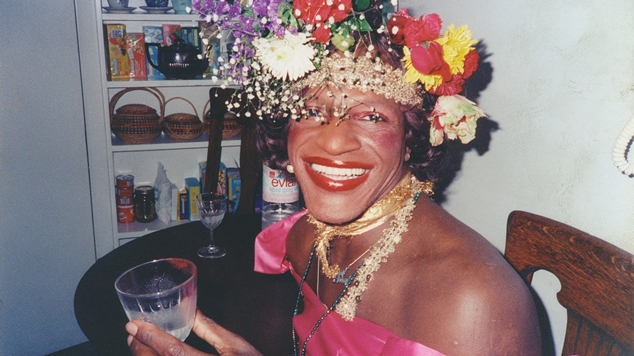Marsha P. Johnson was a pioneer in the fight for transgender rights
A key figure in the 1969 Stonewall riots that were a major catalyst for the momentum of LGBTIQ+ rights around the world, Johnson was a founding member of the Gay Liberation Front and the Street Transvestite Action Revolutionaries (S.T.A.R.), along with close friend Sylvia Rivera, another giant of LGBTIQ+ activism in the USA.
Johnson identified as gender non-conforming, though the term transgender was not widely adopted at the time. Johnson also performed as a drag queen, where the P reportedly stood for ‘Pay them no mind’ and was also dubbed the ‘Mayor of Christopher Street’ – the location of the legendary Stonewall Inn.
In the late 1980s, up until her death in 1992, Johnson was a prominent member of AIDS Activism group ACT UP, fighting against the AIDS pandemic at its peak, alongside the legendary Larry Kramer.

Johnson’s body was found in the Hudson River in 1992, shortly after New York’s annual Pride Parade. Initially her death was considered to be a suicide, but after years of campaigning the case was reopened and police reclassified her death as undetermined.
Johnson’s legacy lives on through her work, and numerous honours in her name. A Brooklyn park was renamed after Johnson in a ceremony led by New York Governor Andrew Cuomo, she has been memorialised in a Google Doodle, and was named one of the 50 American pioneers, trailblazers and heroes of the gay rights movement when the Stonewall Inn was declared a national monument.
In 1750 Jean Diot and Bruno Lenoir were executed in Paris
Late at night on the 4th January 1750 a city watchman in Paris came across two men having sex in public. Jean Diot was a 40-year-old man who worked in a nearby charcuterie, while 23-year-old Bruno Lenoir worked in the neighbourhood as a shoemaker.

They were arrested and imprisoned. They stood trial in April, and on 27th May both were condemned to death. On this day they were taken to Place de Gréve, a customary spot for executions, and strangled and burned to death.
Their sentence was unusual at the time as there was a growing tolerance of same-sex relations, and most people caught breaking the law were usually only given a few days in detention.
It has been speculated that authorities wanted to make an example of the two men, and because they were both working class men they were deemed suitable for the harsh punishment.
They were the last people known to be executed for homosexuality in France. Homosexuality was decriminalised in 1791. In 2014 a plaque was installed on the street where they were arrested.
Do you need some support?
If you are struggling with anxiety or depression, support and counselling are available from:
QLife: 1800 184 527 / qlife.org.au (Webchat 3pm – midnight)
QLife are a counselling and referral service for LGBTQIA+ people.
DISCHARGED: info@discharged.asn.au / discharged.asn.au
Discharged is a trans-led support service with peer support groups for trans and gender diverse folks.
Lifeline: 13 11 14 / lifeline.org.au
Beyondblue: 1300 22 4636 / www.beyondblue.org.au





